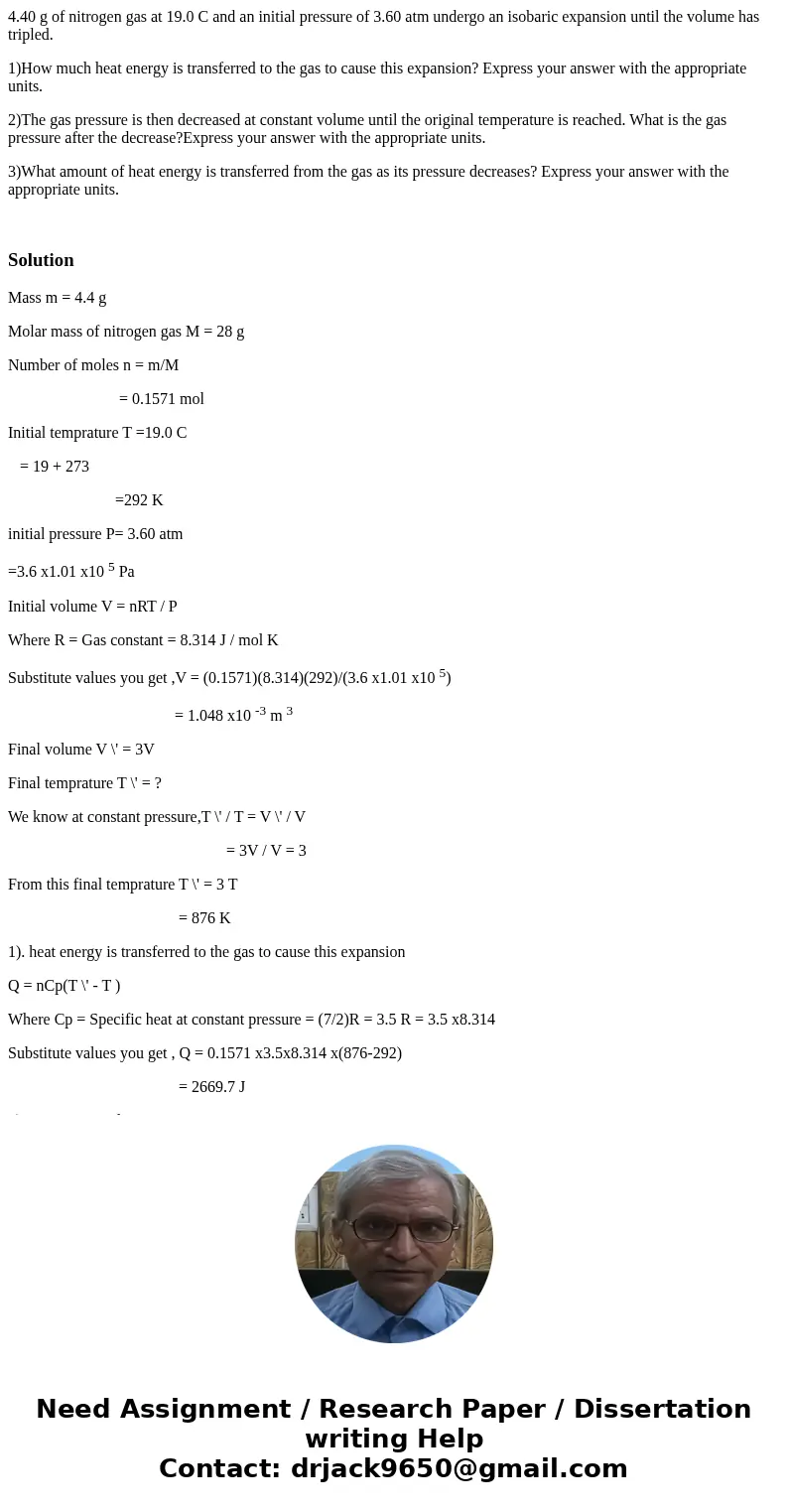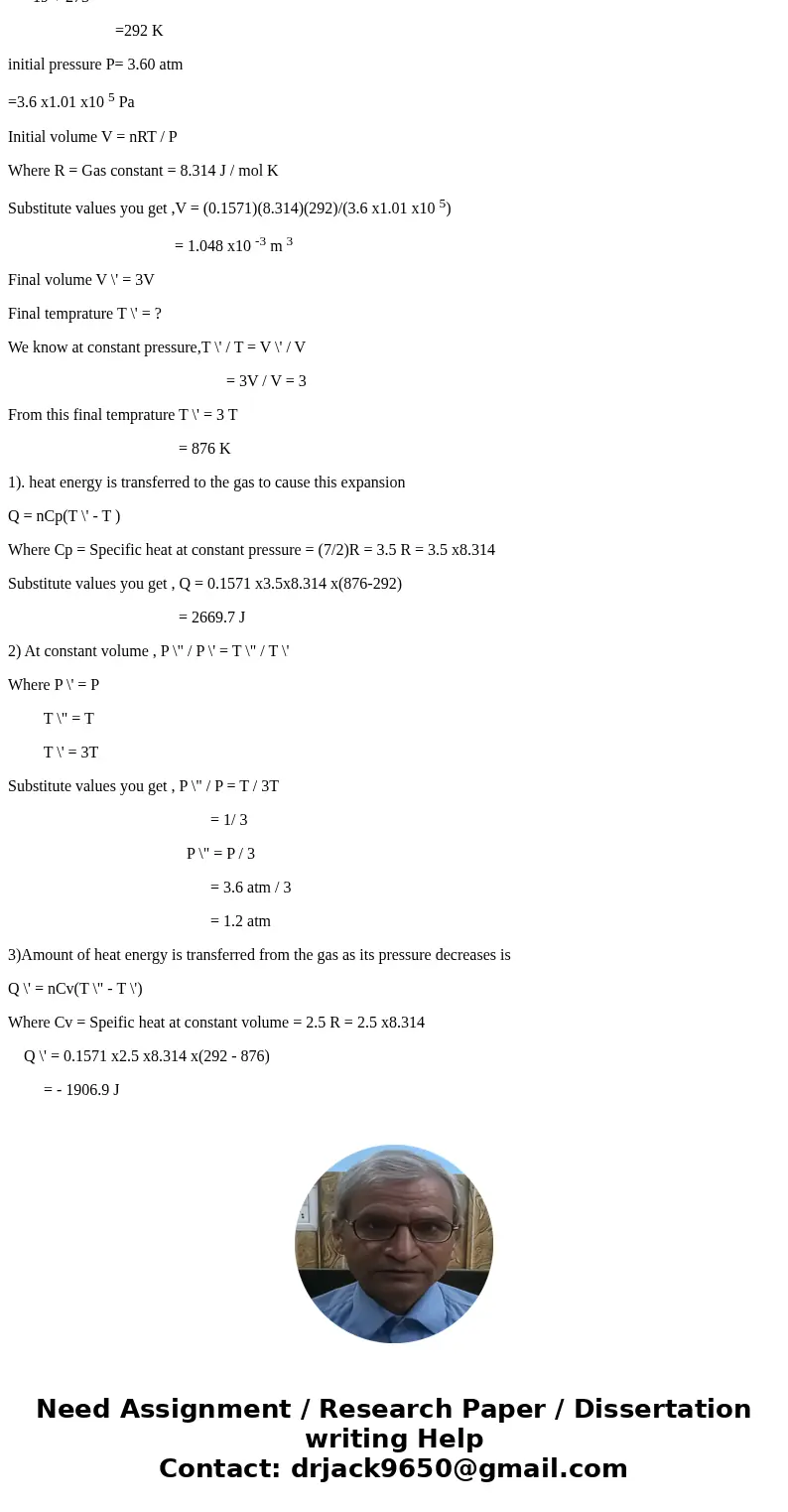440 g of nitrogen gas at 190 C and an initial pressure of 36
4.40 g of nitrogen gas at 19.0 C and an initial pressure of 3.60 atm undergo an isobaric expansion until the volume has tripled.
1)How much heat energy is transferred to the gas to cause this expansion? Express your answer with the appropriate units.
2)The gas pressure is then decreased at constant volume until the original temperature is reached. What is the gas pressure after the decrease?Express your answer with the appropriate units.
3)What amount of heat energy is transferred from the gas as its pressure decreases? Express your answer with the appropriate units.
| | ||
Solution
Mass m = 4.4 g
Molar mass of nitrogen gas M = 28 g
Number of moles n = m/M
= 0.1571 mol
Initial temprature T =19.0 C
= 19 + 273
=292 K
initial pressure P= 3.60 atm
=3.6 x1.01 x10 5 Pa
Initial volume V = nRT / P
Where R = Gas constant = 8.314 J / mol K
Substitute values you get ,V = (0.1571)(8.314)(292)/(3.6 x1.01 x10 5)
= 1.048 x10 -3 m 3
Final volume V \' = 3V
Final temprature T \' = ?
We know at constant pressure,T \' / T = V \' / V
= 3V / V = 3
From this final temprature T \' = 3 T
= 876 K
1). heat energy is transferred to the gas to cause this expansion
Q = nCp(T \' - T )
Where Cp = Specific heat at constant pressure = (7/2)R = 3.5 R = 3.5 x8.314
Substitute values you get , Q = 0.1571 x3.5x8.314 x(876-292)
= 2669.7 J
2) At constant volume , P \" / P \' = T \" / T \'
Where P \' = P
T \" = T
T \' = 3T
Substitute values you get , P \" / P = T / 3T
= 1/ 3
P \" = P / 3
= 3.6 atm / 3
= 1.2 atm
3)Amount of heat energy is transferred from the gas as its pressure decreases is
Q \' = nCv(T \" - T \')
Where Cv = Speific heat at constant volume = 2.5 R = 2.5 x8.314
Q \' = 0.1571 x2.5 x8.314 x(292 - 876)
= - 1906.9 J


 Homework Sourse
Homework Sourse